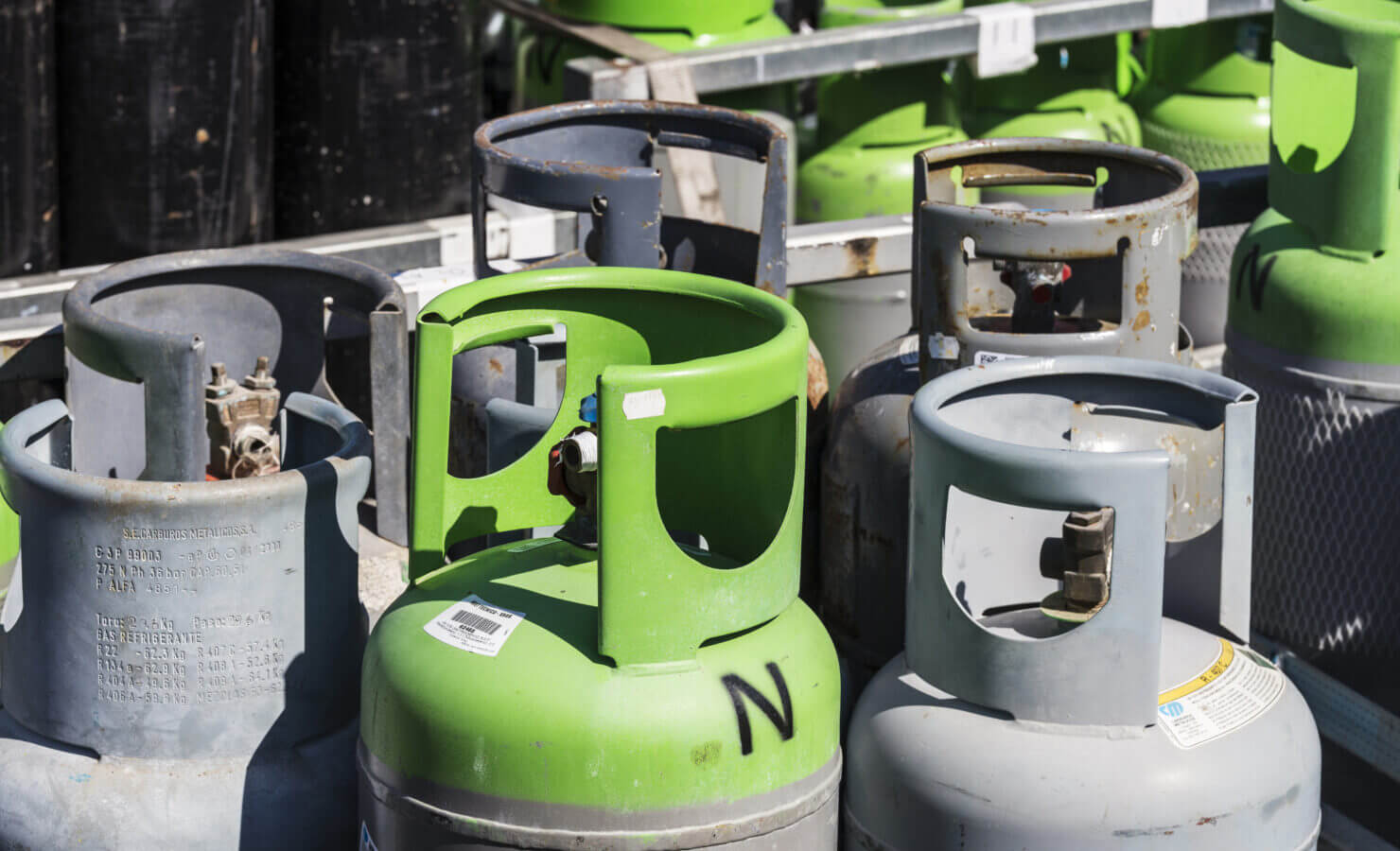Refrigerants play a key role in modern-day conveniences, ensuring our food remains preserved, and our living spaces stay comfortable. Nevertheless, these substances pose environmental threats, particularly concerning global warming and ozone depletion. Even as the refrigeration sector has innovated with more eco-friendly alternatives, the ecological repercussions of refrigerants remain a grave concern. At Greencooler, our focus is on delivering environmentally conscious cooling solutions to minimize these adverse impacts.
What are Refrigerants?
These are compounds used in cooling systems to take in and let out heat, enabling space cooling. Predominantly, refrigerant types like chlorofluorocarbons (CFCs), hydrochlorofluorocarbons (HCFCs), hydrofluorocarbons (HFCs), and organic options are employed in devices such as air conditioners, fridges, and freezers.
Global initiatives, like the Montreal Protocol and the Kigali Amendment, aim to eliminate ozone-harming substances and curb the usage of models with high global warming potential. Greencooler is at the forefront of this change, offering cutting-edge, energy-conserving cooling solutions. We present state-of-the-art commercial refrigeration that reduces food waste and energy use. By choosing Greencooler, customers can reduce the environmental footprint of their cooling needs while being cost-effective.
Types of Refrigerants and Their Environmental Footprint
Previously, Chlorofluorocarbons (CFCs) were popular but later discovered to be major culprits in ozone layer damage. They were succeeded by Hydrochlorofluorocarbons (HCFCs), which, although less harmful, still carried ozone-depleting chlorine. Hydrofluorocarbons (HFCs) were introduced as a greener option but became strong greenhouse gases. Natural ones such as carbon dioxide and ammonia pose minimal threats to global warming and the ozone layer. Their adoption is growing, favoring the environment over synthetic ones. Managing them is vital to minimize emissions with detrimental environmental effects properly.
Chlorofluorocarbons (CFCs)
Initially, refrigeration systems relied on CFCs. Due to their substantial harm to the ozone, they were discontinued under the Montreal Protocol. Their extended atmospheric presence, however, remains a lingering environmental concern.
Hydrochlorofluorocarbons (HCFCs)
Introduced as substitutes for CFCs, HCFCs have reduced, yet present, ozone-depleting effects and are on the path to elimination under the Montreal Protocol.
Hydrofluorocarbons (HFCs)
While HFCs were developed to replace HCFCs and don’t harm the ozone layer, they possess a significant global warming potential, making them major factors in climate change.
Natural Refrigerants
Eco-friendly refrigerants like ammonia, CO2, and hydrocarbons are more sustainable than synthetic varieties. They exhibit minimal global warming effects and don’t deplete the ozone. Incorporating more of these can further mitigate the environmental consequences of these products. However, due to their flammable and toxic nature, careful management is essential during their use and storage. Greencooler offers environmentally conscious refrigeration solutions, emphasizing utilizing these natural ones, especially for the food industry’s needs.
The Role of Refrigerants in Ozone Depletion
Certain refrigerants adversely affect the environment, particularly by depleting the ozone layer. Chlorofluorocarbons (CFCs) and hydrochlorofluorocarbons (HCFCs), once common in cooling systems, are key culprits. The Montreal Protocol, established to eliminate the usage of these ozone-harming substances, has effectively decreased CFC and HCFC production and use. The subsequent Kigali Amendment targets hydrofluorocarbons (HFCs) reduction, further diminishing their environmental harm.
Greencooler offers low-GWP eco-friendly refrigeration methods to address this issue and focuses on energy efficiency. They also adhere to stringent refrigerant management to minimize ozone-harming emissions.
Reducing the Environmental Impact of Refrigerants
It’s vital to lessen the environmental consequences of refrigerants. Improving energy efficiency in cooling systems can drastically decrease refrigerant requirements. Utilizing low-global warming potential (GWP) ones, like hydrofluoroolefins (HFOs) and natural variants, is another effective strategy. The 2019 Kigali Amendment of the Montreal Protocol endeavors to curtail HFC production and endorses the adoption of low-GWP substitutes. Effective refrigerant management, encompassing routine checks and spotting leaks, is pivotal in reducing emissions of harmful substances. Greencooler is dedicated to eco-friendly refrigeration, using natural and low-GWP synthetic ones to ensure peak energy efficiency.
Energy Efficiency and Low-GWP Refrigerants
Reducing the environmental footprint of refrigerants is crucial, and one method is using low-GWP types like HFOs and hydrocarbons. These have less ecological effects compared to high-GWP options. Effective management of them, which includes minimizing leaks, ensuring correct disposal, and employing refrigerant recovery tools, also aids in enhancing sustainability and decreasing environmental harm.
Proper Refrigerant Management
Effective management of refrigerants is essential for lessening their environmental harm. This includes avoiding leaks and limiting the emission of ozone-depleting substances. Periodic checks and upkeep of cooling systems can spot and mend leaks. It’s important to recycle and recover refrigerators to cut down on emissions. Employing qualified technicians and correctly labeling refrigerant bottles aids in efficient handling.
These steps can decrease refrigerant usage, save energy, cut costs, and guard the environment. Firms should adopt responsible refrigerant procedures, like those practiced at Greencooler, to promote our planet’s long-term well-being.
You can reach our previous article from http://greencooler.international/7-things-you-can-keep-in-your-commercial-fridge/

